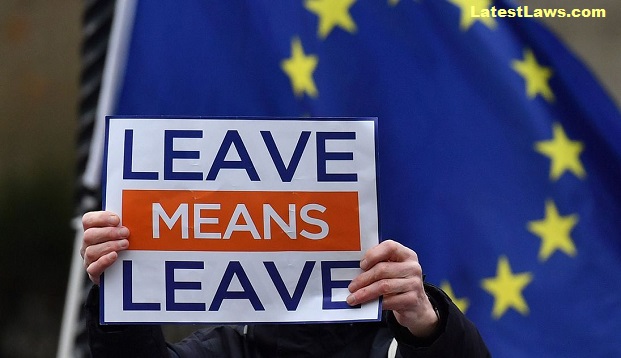December 10, 2018:
On Monday, EU’s top court has ruled the UK can revoke Article 50 and halt Brexit without the permission of other member states.
A judgement given by the European Court of Justice (ECJ) gives the UK the right to unilaterally withdraw its notification to leave the EU.
Campaigners for a second EU referendum claimed the ruling would "electrify" calls for a fresh public vote, while Leave supporters warned of "catastrophic" consequences should Brexit be overturned.
ECJ judges ruled revoking Article 50 is possible until the UK's withdrawal agreement enters into force or - if no deal is reached between London & Brussels - until the end of the two-year Article 50 negotiating period.
The UK could even decide to reverse Brexit within "any possible extension" to the Article 50 period, the court said.
In addition, if Article 50 is revoked, the UK could remain in the EU under the current terms of its membership, judges ruled.
This would allow the UK to keep its rebate on EU budget contributions, continue to opt-out of justice and home affairs legislation, and remain outside of the passport-free Schengen area and the euro single currency.
Withdrawing the Article 50 notification, made by Prime Minister Theresa May in March 2017, must be done in accordance with the UK's "national constitutional requirements" and should be "unequivocal and unconditional".
The court's ruling also noted this would represent "a sovereign decision to retain its status as a member state of the EU", while judges highlighted a principle that a member state cannot be forced to leave the EU against its will.
The judgement by the Luxembourg court comes on the eve of a House of Commons vote on Mrs May's Brexit deal, which is expected to be roundly rejected by MPs.
There are suggestions the government could yet pull the vote if she remains on course for a heavy defeat.
Monday's ruling follows an opinion delivered last week by the ECJ's advocate general Campos Sanchez-Bordona, who told the court it should allow the UK to withdraw its notice of intent to leave the bloc.
The case, which the UK govt. tried to prevent, was brought by a cross-party group of Scottish politicians and was heard by judges last month.
The group included SNP MP Joanna Cherry, SNP MEP Alyn Smith, Labour MEPs David Martin and Catherine Stihler, Green MSPs Andy Wightman and Ross Greer, and barrister Jolyon Maugham.
Liberal Democrat Brexit spokesperson Tom Brake and Labour MP Chris Leslie were listed as additional parties in court documents.
Mr Leslie, who is campaigning for a second EU referendum, described Monday's ruling as a "massive, game-changing moment".
He told, "If the British people, potentially through a people's vote, want to reverse out of this process, they now have that right. And that, I think, will electrify the debate, certainly in parliament.This notion that the prime minister has put up which somehow is an ultimatum, you have to take her deal or there's no deal, that is no longer the case."
However, Environment Secretary Michael Gove - a leading figure in the Brexit campaign - stressed the ruling would not prevent the UK leaving the EU next year.
He added, "We don't want to stay in the EU. We voted very clearly - 17.4million people sent a clear message that we want to leave the EU and that means also leaving the jurisdiction of the European Court of Justice. So, this case is all very well but it doesn't alter either the referendum vote or the clear intention of the government to make sure that we leave on 29 March."
Fellow Brexiteer and Tory minister Nadhim Zahawi argued vehemently against a second EU referendum in the wake of the ECJ's decision.
He concluded, "Betraying the democratic will of the British people will be catastrophic for this country. It will unleash forces - none of us know where this will end up.
Source Link
Picture Source :

























